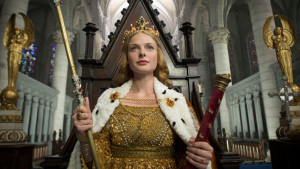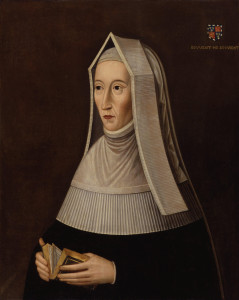
I stumbled across something interesting the other day. For some reason, I was checking out the Wikipedia entry on ‘usurpers of the English throne’ (we’ve all done it) and discovered that it features a list of those who had seized the crown. As you can imagine, it was an exciting moment!
But it was also a moment that triggered a surge of indignation in my usually placid personality. For while Henry IV, the first Lancastrian King had made his way onto the list, Edward IV of the House of York was strangely absent.
Before this spirals into a whole Lancaster vs York partisan thing, let me be clear: I fully accept that Henry IV deserves his place on the list. Even though his bid to seize the throne was initially fairly popular and despite propagandist claims that his cousin Richard II ‘agreed’ to the new arrangement, there can be no doubt that Henry of Bolingbroke was a usurper. Richard II was clearly forced off the throne and even if he had died or surrendered it willingly, there was arguably another with a better claim.
But excluding Edward IV, who seized the throne from the Lancastrians in 1461, really got my goat.
Although the authors of the page do not present a reason for their spurious (yes, I said it – spurious) decision, it’s not hard to guess where they’re coming from. While Henry Bolingbroke – as the eldest son of Edward III’s third son – was the heir male of his grandfather (or at least, he was after Richard II had actually died), the house of York descended in the female line from Lionel of Antwerp (Edward’s second son), making Edward IV the heir general of his namesake. Most historians now believe this gave York a superior claim to the throne. No doubt the Wikipedia entry does therefore not list the first York King as a usurper because they view it as a restoration of the true blood line.
But this doesn’t stack up.
To start with, back in 1399, when Henry IV was crowned, there was genuine confusion as to whether someone could base their claim to the throne through descent in the female line. Obviously this had become fairly meaningless by the end of the War of the Roses when even the best Lancastrian claimant (Henry Tudor) was basing his right to the crown on his mother’s lineage. But for as long as the male-line Lancastrian wing existed, they had a right which could well have been viewed as superior.
The real reason actually goes much deeper. Regardless of the ‘who had the better claim’ debate, the truth was that by 1461, the house of Lancaster was an established dynasty. The crown had passed seamlessly from the first Lancastrian King to his son who reigned so successfully that his infant boy inherited without challenge. Not only had Henry VI inherited the crown smoothly enough, he had held it for the first 40 years of his reign without anyone questioning it. When Edward IV managed to get his hands on power, Parliament had only recently re-asserted Henry’s right to it, albeit at the cost of disinheriting his son.
To take the throne, Edward IV had to seize it by force. Both law and the establishment were initially against him. In my book, this is the very definition of usurption and, to be frank, it should be in anybody’s. Perhaps the Wikipedia community could take a little look at this post and snap into edit mode.
(Editor’s note: What really makes my blood boil is that Richard III is also excluded from the list of usurpers. I’m too angry about this to even put pen to paper.)
Well geeks over to you…am I misjudging what it means to usurp? Are you a crazed Yorkist who believes that house can do no wrong? Do you have a crush on Max Hastings and are letting that cloud your view? I want to know what YOU think!



